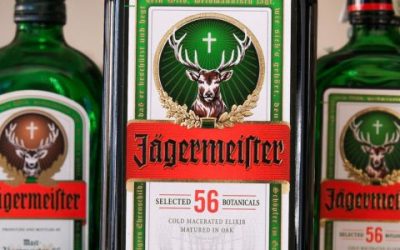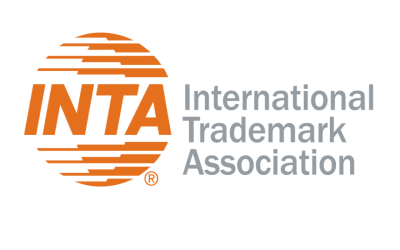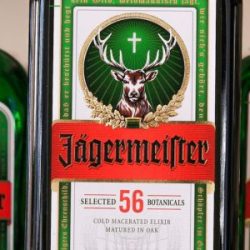The Hon’ble High Court of Delhi recently enunciated a substantial decision in the matter of Mokobara Lifestyle Private Limited v. Mr. Fazal Mohamed Yakub Patka & Ors. [CS (COMM.) NO. 591/2025] on May 30, 2025, granting ad-interim relief to the Plaintiff, M/s. Mokobara Lifestyle Private Limited, with the intent to reinforce the crucial principles of trademark and trade dress protection.
Hon’ble Mr Justice Amit Bansal, in his ex-parte ad interim order, restrained the defendants from trading, manufacturing, selling, or advertising suitcases that bear a striking resemblance to Mokobara’s registered designs. This order reflects the primary function of India’s evolving IP jurisprudence, where courts are progressively adopting a stricter approach against flagrant reproductions of the unique and distinctive trademark features of pre-existing proprietors. The case further exemplifies the bold moves that the respective courts are capable of making to demonstrate how registered trademarks and even unregistered trade dress can receive judicial protection when third parties attempt to hijack the goodwill of an established brand.
At the heart of this issue lies Mokobara’s safely and securely registered trademark and its unique and distinctive trade dress, comprising specific design elements that render its consumer-facing utility products immediately identifiable to customers. The Defendants, conducting business under the brand ‘Ventex Germany’, were found to be branding and marketing nearly identical luggage bags under a name that replicates Mokobara’s rectangular design, color scheme, piping patterns, horizontal ridges, and even the unique yellow-checkered inner lining featuring the letter ‘M’ of Mokobara.
The Hon’ble Court’s analysis of the facts and the interpretation of applicable laws under Sections 29(1) and (2) of the Trademarks Act, 1999, established a prima facie case of infringement, observing that the threshold of confusion was so exorbitant that it would cause consumer misperception in the marketplace. This interpretation aligns completely with established legal principles that prevent infringers from operating with mala fide intentions of secondary brand association.
It is noteworthy that the Hon’ble Court rejected any plausible justification for the infringers’ adoption of Mokobara’s trademarks. The Hon’ble Mr Justice Amit Bansal’s observation that such imitation could only stem from an ulterior motive to tarnish the Plaintiff Mokobara’s reputation, which underscores a fundamental tenet of trademark law, i.e., the prevention of unfair competition in the relevant market to create an appreciable adverse effect on competition. The decision draws strength from impactful precedents, such as Apple Inc. v. Xiaomi, where the respective court intervened against slavish copying of product aesthetics. This approach reflects the judicial awareness of the present-day brand-conscious market, where product appearance and packaging often serve as critical differentiating factors, warranting a robust legal hammer over the heads of imitators.
The grant of injunction in the present matter merits careful examination and well-reasoned observation since it ought to demonstrate the Hon’ble Court’s focus and dedication to act unapologetically and decisively in matters of prima facie infringement. The three-fold test for injunction, including prima facie case, balance of convenience, and irreparable injury, was conclusively and convincingly satisfied. The Plaintiff successfully established the validity of its rights in its registered trademarks, as well as the threat of wrongful damages that ought to be caused by the defendants’ activities, including brand dilution and consumer deception. The balance of convenience heavily favored the greener side of the Plaintiff, particularly because the defendants’ modus operandi appeared to be founded on exploiting Mokobara’s established position in the relevant market among all stakeholders.
When viewed from a broader perspective, this order sends a clear warning to proprietors engaged in the trading and manufacturing of similar products with deceptively similar trade dress, particularly in rapidly growing market structures such as the e-commerce sector, where counterfeit goods are prevalent. The order underscores the necessity for every proprietor to secure comprehensive IP protection for their brand names and trade dresses encompassing not just word marks but also product designs and trade dress. Furthermore, the ruling underscores the importance of proactive brand monitoring and swift legal action against infringers who attempt to capitalize on the reputation of pre-existing, well-known brands.
The present order has made a significant contribution to India’s IP jurisprudence by reaffirming that the respective courts will never hesitate to protect the rightful interests of legitimate businesses with unique and distinct marks against parasitic commercial practices and practitioners. The Mokobara case serves as a significant milestone in the ongoing evolution of intellectual property rights’ protection in India, reinforcing the judiciary’s role both as the guardian and as the protector of the fair market.

Written by Divyam Garg
Advocate, Supreme Court of India, Trademark Attorney and Insolvency Litigation Expert
You may also like…
EUIPO and UANIPIO welcome the integration of Ukraine’s trademarks into TMview
The European Union Intellectual Property Office (EUIPO) and the Ukrainian National Office for Intellectual Property...
Jägermeister succeeds in opposing the EU trademark application Alten Kräuterfrau for alcoholic beverages
Mast-Jägermeister SE filed an opposition on the grounds of Article 8(1)(b) – likelihood of confusion between the signs...
INTA’s Brand & New podcast wins prestigious w3 Award for “Inside the Dupe Revolution” series
New York, New York—October 14, 2025—The International Trademark Association (INTA) is proud to announce that its...
Contact us to write for out Newsletter













